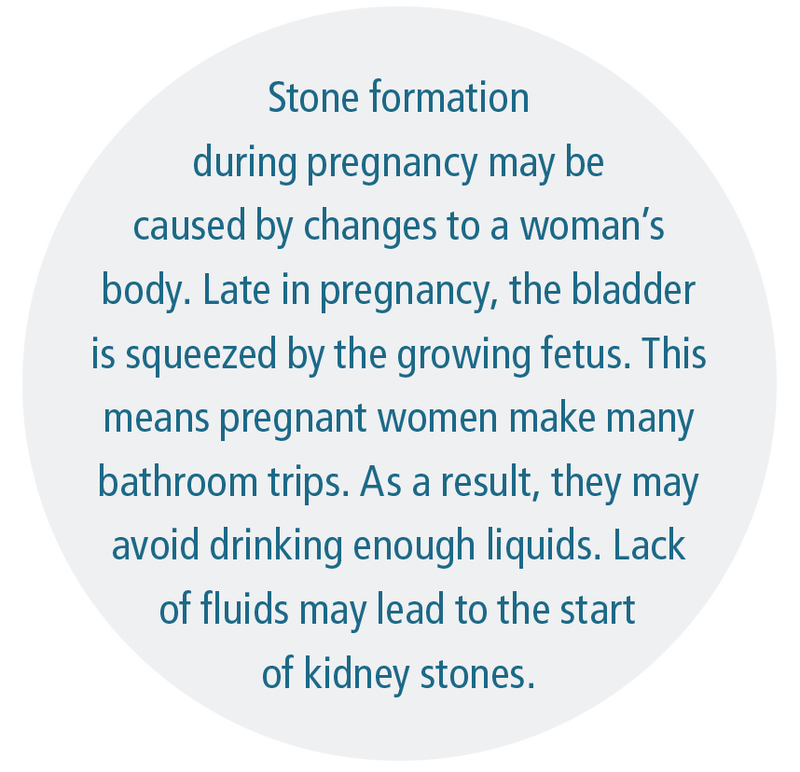| DID YOU KNOW? |
Pregnancy and Kidney Stones
Kidney stones occur in about one of every 1,500 to 3,000 pregnancies—about the same rate as in non-pregnant women of childbearing age. Overall, kidney stones affect about 1 in 11 people—19% of men and 9% of women by age 70.
Kidney stones occur most often in the
second or third
trimester
Common signs
- Pain in the upper abdomen or back and sides, which often spreads to the groin or lower abdomen
- Nausea/vomiting
- Urinary urgency and frequency
- Blood in the urine

Diagnosing and treating kidney stones can be done safely, with little risk to the mother or baby. Most kidney stones pass through the body, especially if they are smaller. Larger stones may need treatment. If left untreated, kidney stones may lead to premature labor or interfere with normal labor.
If you’ve already had kidney stones, the best way to stop future stones is to drink enough liquid
about 3 quarts
(ten 10-ounce
glasses) A day.
Remember to drink more to replace fluids lost when you sweat from exercise or in hot weather. It's best to drink mostly no-calorie or low-calorie drinks.
Treatment of kidney stones in pregnancy ranges from bed rest, pain relievers and getting enough fluids, to threading a very small telescope called a utereroscope into the bladder and kidney to remove or break up a stone.
For more information about Kidney Stones, visit UrologyHealth.org
UrologyHealth.org | SUMMER 2019 | UROLOGYHEALTH extra